 |
 |
|||||||||||||||||||||||||||||
| FIFA | ||||||||||||||||||||||||||||||
| FIFA - Fedration International of Football Association | ||||||||||||||||||||||||||||||
| Found in: 1904
President: Joseph S. Blatter (Switzerland) Secretary: Michel Zen-Ruffinen Located: FIFA House - Hitziweg, 11 PO Box 85 8030 Zurique - Switzerland Official Internet Site: www.fifa.com |
||||||||||||||||||||||||||||||
 |
||||||||||||||||||||||||||||||
| The Fédération Internationale de Football Association (FIFA) was founded in the rear of the headquarters of the Union Française de Sports Athlétiques at the rue Saint Honoré 229 in Paris on 21 May 1904. The foundation act was signed by the authorized representatives of the following Associations: The first official international matches took place on the continent at the beginning of the century. The idea of founding an international federation began taking form. In general, one intended recognizing the leading role of the English who had already founded their Football Association in 1863. Thus, Carl Anton Wilhelm Hirschmann, secretary of the Netherlands Football Association, turned to the Football Association. Its Secretary did accept the proposal but until the Executive Committee of the Football Association, the international F. A. Board and the Associations of Scotland, Wales and Ireland had given their opinion about the matter, a great deal of time went past. Robert Guérin, Secretary of the Football Department of the Union Française des Sociétés de Sports Athlétiques and journalist with the "Matin" did not want to wait any longer. He greeted the Football Associations on the continent in writing and asked to study the possibility of founding an umbrella organisation. After an intensive exchange of correspondence, the first thoughts were made on the subject. Belgium faced France at the first official international match in Brussels on 1 May 1904. On that occasion, both Association secretaries Muhlinghaus and Guérin had a discussion. It was now definite that the Football Association, England under its President Lord Kinnaird would not be participating in the foundation of an international federation. So Robert Guérin took the opportunity and sent out invitations to the founding assembly. The services rendered by the founders were enormous. One began organising international football at a higher level. The first FIFA Statutes were laid down. The following points were determined: the reciprocal and exclusive recognition of the National Associations represented and attending; clubs and players were forbidden to play simultaneously for different National Associations; recognition by the other Associations of a player's suspension announced by an Association and the playing of matches according to the Laws of the Game of the Football Association Ltd. Each National Association had to pay an annual fee of FF.50. Already in those days, one thought about staging a big competition and Article 9 stipulated that FIFA alone was entitled to take over the organisation of an international competition. It was decided that these regulations would only come into force as of 1 September 1904. Moreover, the first Statutes of FIFA were only of a provisional nature, in order to simplify the acceptance of additional members. The Deutscher Fussball-Bund (German F. A.) announced itself by cable on the foundation day still. |
||||||||||||||||||||||||||||||
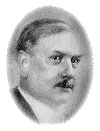 |
The first FIFA Congress held two days later on 23 May 1904 elected Robert Guérin as President. Victor E. Schneider (Switzerland) and Carl Anton Wilhelm Hirschmann (Netherlands) were made Vice-Presidents. Louis Muhlinghaus (Belgium) was appointed Secretary and Treasurer, with the assistance of Ludvig Sylow (Denmark). These pioneers were faced with an immense task because FIFA only existed on paper so to speak. One had to give it shape, create Associations as true national representations and get hold of new members. In the first place, the English had to be convinced that their membership to this newly created organisation was indispensable. | |||||||||||||||||||||||||||||
| ROBERT GUÉRIN France, 1904-1906 |
On 14 April 1905, the Executive Committee of the Football Association Ltd. recognized the National Associations affiliated to FIFA and joined. This was FlFA's first big success, thanks to Baron Edouard de Laveleye. With great personal efforts, the President of the Union Belge des Sociétés de Sports Athlétiques dissipated the last misgivings and doubts of the English. The Baron became the first honorary member of FIFA. | |||||||||||||||||||||||||||||
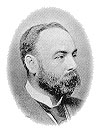 |
||||||||||||||||||||||||||||||
| The Englishman, Daniel Burley Woolfall was elected new President. He was a pragmatist and had gathered a great deal of experience on the administrative board of the Football Association. Under his guidance, English and continental football became more united. Moreover, he also launched an inexorable battle for uniformity in the Laws of the Game. |
||||||||||||||||||||||||||||||
| Jules Rimet became 3rd President on 1 March 1921. FIFA became the life task of the then 48 year-old Frenchman. When he took over the world football federation, the latter which had been shaken by the I World War, counted 20 | 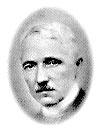 |
|||||||||||||||||||||||||||||
| DANIEL BURLEY WOOLFALL England, 1906-1918 |
||||||||||||||||||||||||||||||
| members. The British had left in unison and neither Brazil nor Uruguay were present. In the 33 years of his presidency, FIFA experienced an incredible upswing in spite of the II World War. One ought to talk about a "Jules Rimet Era" because he managed to reorganise FIFA and to materialize the dream of a World Cup. On passing on the reins of FIFA in 1954, when he opened his 5th World Cup in Switzerland, FIFA counted 85 members. |
||||||||||||||||||||||||||||||
| JULES RIMET France, 1921-1954 |
||||||||||||||||||||||||||||||
| Right from the start, Jules Rimet was not unknown. He had already participated in the Congress in Christiania in 1914 as representative of the French Football Association. The following proposal was | ||||||||||||||||||||||||||||||
| ratified on that occasion: " Under the condition that the Olympic Tournament take place in accordance with the Regulations of FIFA, the latter shall recognize this as a world football championship for amateurs." In order not to lose every possibility of organising its own world championship, FIFA was ready to assume the responsibility for the organisation of the football tournament for the first time. |
||||||||||||||||||||||||||||||
| Following a remarkable proposal of the Executive Committee, the FIFA Congress in Amsterdam on 28 May 1928 decided to stage a world championship organised by FIFA. Now, the organising country had to be chosen. Hungary, Italy, the Netherlands, Spain, Sweden and Hungary submitted their candidatures. Right from the start, Uruguay was the favourite for important reasons: The country of the twofold Olympic winner (in 1924 and 1928) was celebrating its 100th anniversary of independence in 1930 at great expense. |
||||||||||||||||||||||||||||||
| Moreover, the Football Association was ready to take over all the costs as for example, the passage and accommodation of the participants. Any possible profit would be shared, while Uruguay would take over the deficit. These arguments were decisive. The FIFA Congress in Barcelona in 1929 assigned Uruguay as first organising country for the World Cup. The other candidates had withdrawn. This decision did not only meet acclaim. Europe was plunged in the midst of an economic crisis. Participation in a World Cup did not only involve a long sea journey for the Europeans; the clubs would have to renounce their best, permanent players for two months. More and more associations broke their promise to participate, thereby seriously endangering the organisation of the World Cup. Having nearly achieved his aim, President Jules Rimet was no longer impressed. Thanks to his personal effort, at least four European teams set off on the long journey: France, Belgium, Yugoslavia and Romania. The first World Cup was opened at the Centenary Stadium in Montevideo on 18 July 1930. A new epoch had begun for world football. |
||||||||||||||||||||||||||||||
 |
The Belgian, Rodolphe William Seeldrayers was the fourth President of FIFA. In his new function, he could celebrate the 50th Anniversary of FIFA, which now counted 85 members. After having assisted Jules Rimet as Vice-President for over 25 years, he died in October 1955. His successor was Arthur Drewry who was elected on 9 June 1956, but had already headed FIFA for over half a year on an interim basis. He chaired the Study Committee for the new FIFA Statutes and opened the 6th World Cup in Stockholm in 1958. This proceeded very positively and saw Brazil become the clear winners. Arthur Drewry died on 25 March 1961 at 70. |
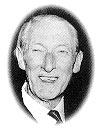 |
||||||||||||||||||||||||||||
| RODOLPHE WILLIAM SEELDRAYERS Belgium, 1954-1955 |
ARTHUR DREWRY England, 1955-1961 |
|||||||||||||||||||||||||||||
| Sir Stanley Rous was elected 6th President of FIFA. He was an excellent referee in his youth and was well acquainted with international football. During his term of office as President, England won the 1966 World Cup to his special joy. He was very | ||||||||||||||||||||||||||||||
| popular throughout the world. Among the first steps taken by newly independent nations was their affiliation to FIFA. So, the number of members grew steadily. The TV transmission of the World Cup also considerably contributed towards the worldwide expansion. FIFA was rather conservative in those days and reserved in its decisions. Its means and possibilities were restricted. As a private institution, it received neither governmental subsidies nor funds from other sources. Funds strictly came from profits from the World Cup and this is how one had to live and work for four years. It hardly seemed possible to accomplish more without taking risks. Thus, with a great deal of self-sacrifice, one went about consolidating and maintaining the work. Sir Stanley Rous achieved all this. In recognition of his merits, he was made Honorary President of FIFA in Frankfurt on 11 June 1974. |
||||||||||||||||||||||||||||||
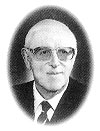 |
||||||||||||||||||||||||||||||
| SIR STANLEY ROUS England, 1961-1974 |
||||||||||||||||||||||||||||||
| On that day, the Brazilian Dr. João Havelange took over the reins of the Fédération Internationale de Football Association. From the moment the South American Confederation, the Confederación Sudamericana de Fútbol, presented his candidature for the FIFA Presidency in 1970, he had looked for solutions to the major problems of world football. When Dr. João Havelange was elected at the 39th Congress in 1974, he was ready to consider football not only as a competition, but also to try and find new ways and means to worldwide technical development and to prepare new generations for this. Dr. João Havelange's installation in FIFA's headquarters heralded the dawn of a new era. Previously, with survival depending almost exclusively on limited resources from World Championships in four-yearly intervals, FIFA had been somewhat conservative and reserved when it came to taking decisions. Administrative energy had been concentrated on consolidating and maintaining the status |
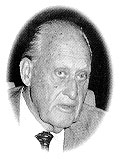 |
|||||||||||||||||||||||||||||
| JOÃO HAVELANGE Brazil, 1974-1998 |
||||||||||||||||||||||||||||||
| quo. In no time, Havelange transformed an administration-oriented institution into a dynamic enterprise brimming with new ideas and the will to see them through. The actual address in Zurich has not altered but instead of the romantic Derwald Villa on the Zurichberg, where in 1974 a staff of twelve used to coordinate the fate of world football, there is now a modern office building housing almost 100 employees coming to grips with an ever increasing workload. |
||||||||||||||||||||||||||||||
| Over the past twenty-five years football has not only taken root as the world's major game in an ephemeral world but has also blossomed in other branches of society, commerce and politics. Football, more than any other factor, has enveloped whole regions, people and nations. With approximately two hundred million active players it now constitutes a substantial chunk of the leisure industry, having opened up new markets for itself and for the rest of the business world. The potential has yet to be exhausted, especially in Asia and North America. As of mid-1998, FIFA has grown to include 203 member associations, thus making it one of the biggest and certainly the most popular sports federation in the world. |
||||||||||||||||||||||||||||||
| On 8 June 1998 Joseph S. Blatter (Switzerland) was elected as the successor to João Havelange (Brazil) as the eighth | ||||||||||||||||||||||||||||||
| FIFA President. This victory at the 51st FIFA Ordinary Congress in Paris (France) elevated Joseph S. Blatter, who had already served FIFA in various positions for twenty-three years, onto the highest rang in international football. |  |
Joseph S. Blatter is one of the most versatile and experienced exponents of international sport diplomacy and is totally committed to serving football, FIFA and the world's youth. |
||||||||||||||||||||||||||||
| JOSEPH S. BLATTER Switzerland, since 1998 |
||||||||||||||||||||||||||||||
 |
||||||||||||||||||||||||||||||
 |
||||||||||||||||||||||||||||||
| Top | ||||||||||||||||||||||||||||||